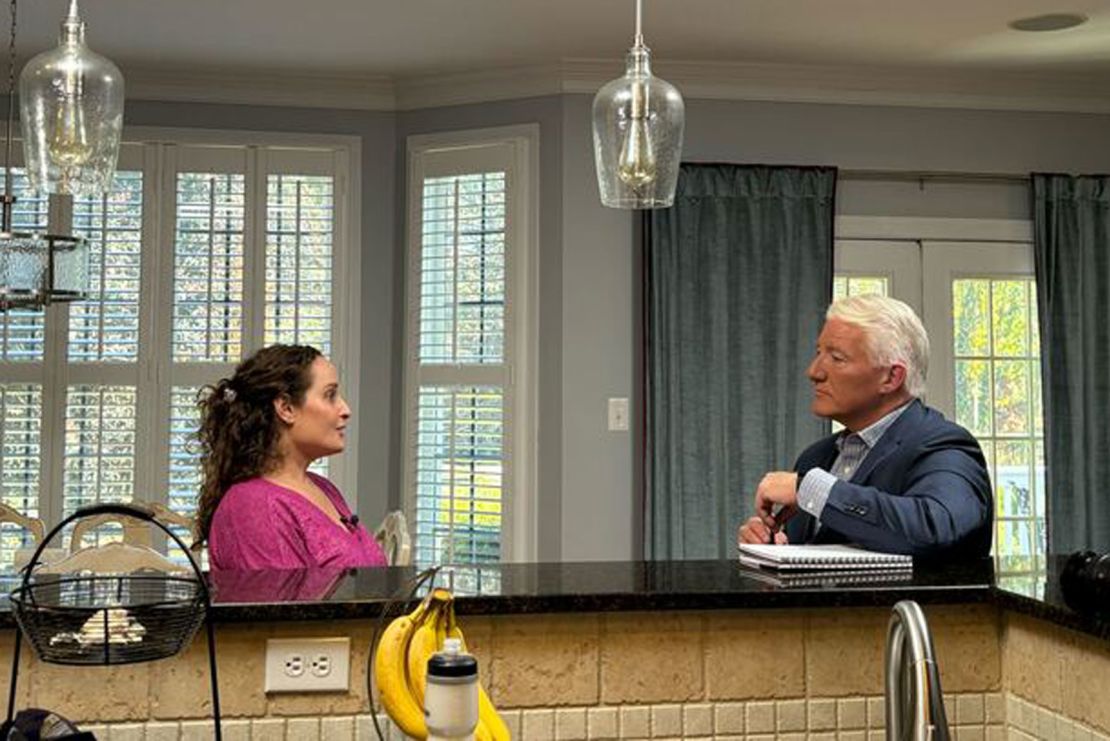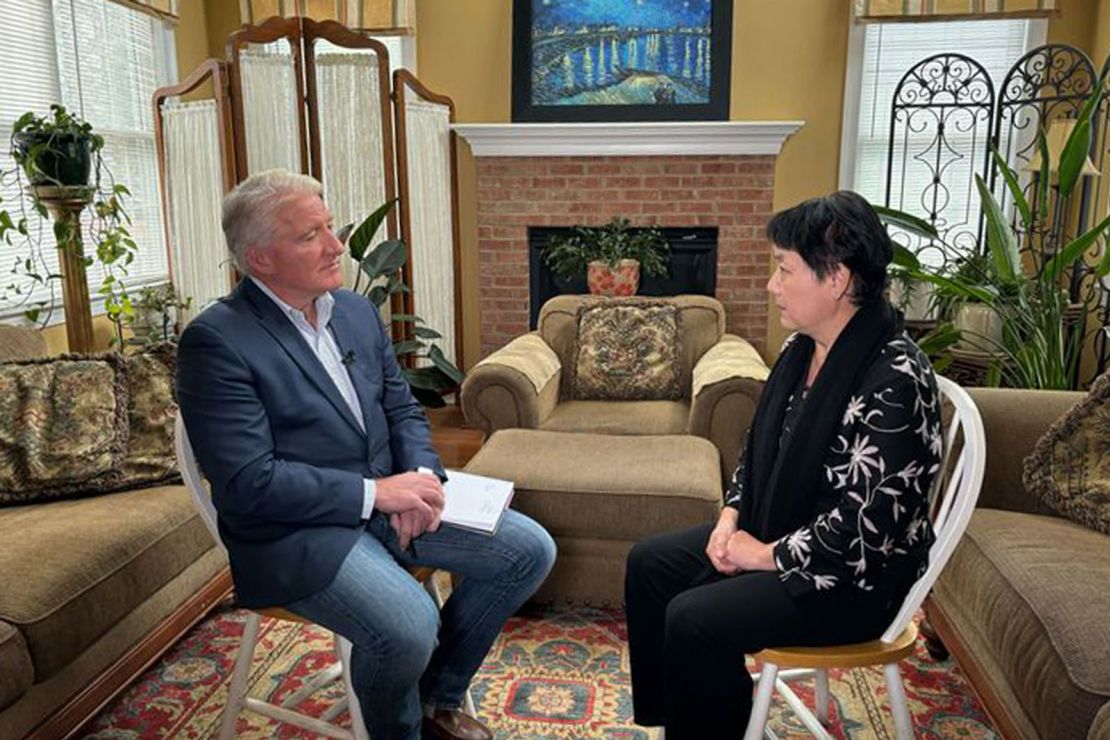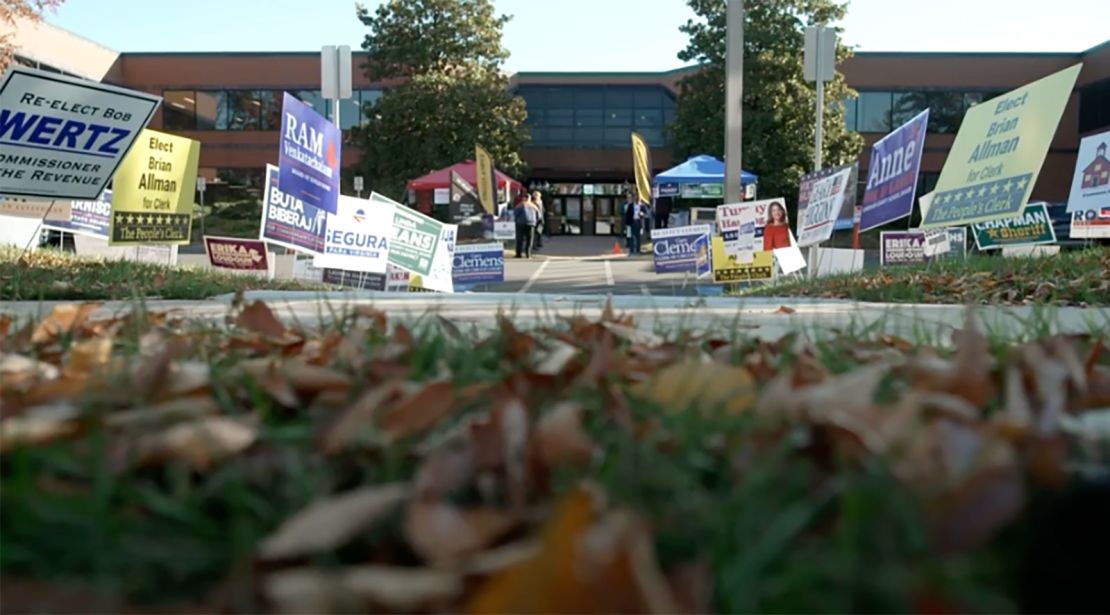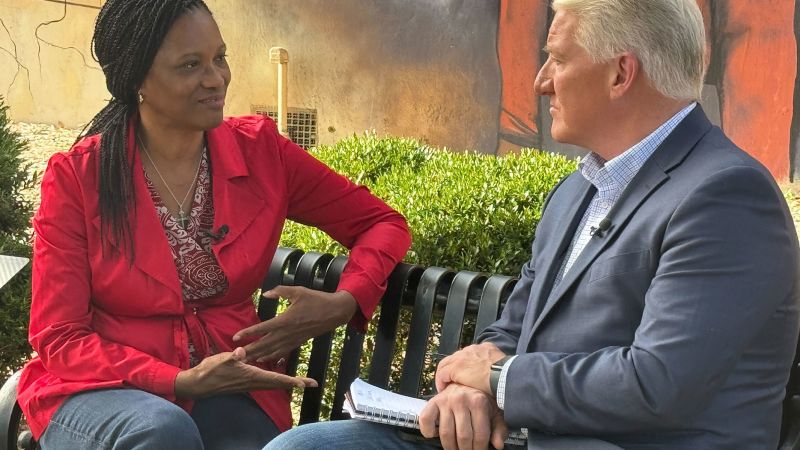Nanette Mees is a registered Republican and a textbook example of Virginia’s shift from red to blue.
Her last Republican vote for president was in 2004, which is also the last time a GOP presidential nominee – George W. Bush back then – carried suburban Loudoun County and the commonwealth.
In the nearly two decades since, Mees voted for Barack Obama twice, Hillary Clinton and Joe Biden.
“I mean, abortion, guns – those are two big things,” said Mees, explaining her choice to vote Democratic in the past four presidential elections.
She is prepared to extend that streak to five next November, but not without hesitation.
“I don’t think he is the perfect one,” Mees said of Biden. “But if I have to pick between him and [Donald] Trump, who I would never, ever, ever vote for, it would be Biden. I would just pray.”
That choice is a year away.
A more immediate choice will also have significant national ripples – Tuesday’s legislative elections in Virginia, where control of the state House and Senate is at stake. The outcome will impact America’s abortion debate, its broader political fight for supremacy in the suburbs and the ambitions of the commonwealth’s Republican governor, Glenn Youngkin.
“Hold the House, flip the Senate” has been Youngkin’s mantra campaigning for GOP candidates in the run-up to Tuesday. The governor, who is about halfway through his term and not on the ballot, sees himself as a Republican who appeals to both the GOP’s Trump base and suburban voters.
And he thinks he can maintain that appeal while pushing new abortion restrictions, promising that if Republicans take full control of the legislature, they will pass and he will sign legislation to outlaw abortions after 15 weeks, with exceptions for rape, incest and the life of the mother.
His Spirit of Virginia political action committee has spent heavily, and Youngkin’s rallies across the state look very much like a presidential test run. The legislative candidates get a few minutes to make their case, and then Youngkin promises, if given a Republican legislature, to cut taxes, boost police spending and give parents more rights over school curricula.
“The other side is so afraid of losing Virginia totally because in 24 months we’ve turned this state from blue to red,” Youngkin said at a rally last month in Henrico County.
Missing from his rally speeches: any mention of abortion.
The governor rejects the idea that he omits abortion because of worries his proposal will alienate swing voters.
“It’s very clear where I stand on this,” Youngkin said after the Henrico County rally. “We’re running a big advertising campaign. … I believe Virginians can come together around a bill to protect life at 15 weeks with full exceptions for rape and incest and when a mother’s life is at risk.”
Since the Supreme Court tossed out the landmark Roe v. Wade ruling, Republicans have suffered a series of electoral setbacks in direct votes on the future of abortion rights, even in solidly conservative states like Kansas.
Youngkin is trying to prove there is a middle ground that is enough to keep the GOP’s anti-abortion base on board while also winning enough votes from abortion rights supporters who are open to some restrictions. This test is playing out in a state Biden carried by 10 points, buoyed by big wins in the same suburbs where you find most of the legislative districts critical to settling the balance of power in Richmond.
“The discussion around abortion is one between an extreme position from the left and a reasonable position from all Republicans,” Youngkin said after the rally, which was attended by state Sen. Siobhan Dunnavant – a Republican running in a Democratic-leaning suburban Richmond district.
Dunnavant’s Democratic opponent, state Del. Schuyler VanValkenburg, puts a heavy emphasis on abortion in his TV ads. “There is nothing reasonable about banning abortion. But that’s exactly what Siobhan Dunnavant wants to do,” one ad opens.
Ads run by Youngkin’s Spirit of Virginia PAC aim to change the conversation from the “banning abortion” language, which Republican strategists acknowledge has hurt them in elections since the Dobbs decision – especially among swing voters.
“Here’s the truth: There is no ban,” a woman says in a Youngkin ad. “Virgnia Republicans support a reasonable 15-week limit.”
Rachel Kulak, a stay-at-home mom and Trump supporter, describes herself as a conservative independent who is “a little disillusioned with both parties right now.”
She lives in Dunnavant’s district and supports the Republican because “during the Covid lockdowns, it was Siobhan Dunnavant that really worked to get our kids back in the classroom and I’m deeply appreciative for that.”
Kulak is an abortion opponent who wishes Virginia would copy Florida’s six-week ban.
“But if you can get it to 15 weeks, I think perhaps that is a fair middle ground,” she said in an interview. “We’ll never all agree on this issue.”

Xi Van Fleet, a conservative activist in Loudoun County, is an outspoken critic of local school officials who she says remind her of growing up in Mao’s China.
“In China, it’s basically class, you know, divided by oppressors and oppressed,” she said in an interview. “And here: race, gender, sexuality and it goes on and on and on.”
Van Fleet is a Youngkin fan because of his push for more parental say in school decisions.
She is not so sure about the abortion proposal.
Once a staunch abortion foe, she said, “I do think it should be legal. We should not ban it.”
But Van Fleet added, “Fifteen weeks probably is a reasonable cut-off.”
Van Fleet is a reliable Republican voter, and Loudoun County still leaned decidedly red when she moved to Northern Virginia 18 years ago.
The population was just shy of 90,000 then. Today, Loudoun is home to more than 420,000 people, its Civil War historic sites and horse country now competing with a housing and warehouse boom linked to the county’s new identity as a premier high-tech data hub.
Most of the new jobs require college degrees, and education is the most telling dividing line in today’s politics. The median household income in the county is nearly $157,000, more than twice the national median household income of $74,580.
In 1990, Loudoun’s population was 88% White and 7% Black. Now, the county is 53% White, 22% Asian and Pacific Islander, 14% Hispanic and 7.5% Black.
“My neighbors are Indian, Vietnamese, Korean, and I’m Chinese,” Van Fleet said.
There is, in Van Fleet’s view, a downside to the Loudoun population boom: a giant shift to Democrats.
“Very much so,” she said. “That bothers me, yes.”

George W. Bush won Loudoun County with 56% of the vote in 2004. In 2020, Trump received just 37%. Youngkin did not carry the county in his 2021 gubernatorial win, but margins matter: His 44% in Loudoun County was a big improvement from Trump’s share.
Youngkin boosters frame the governor as a model for a post-Trump Republican Party. To that end, the governor has been all-in this year in encouraging early voting, something the former president has for years ridiculed as corrupt and a waste of time.
“I think we have had great success,” Youngkin told CNN in response to a question about trying to leave the Trump approach behind. “We started behind because the Democrats had started embracing early voting a long time ago, and we’ve made real progress against that.”
Mees is one registered Republican who voted early.
But she backed Democratic state Senate candidate Russet Perry for the same reasons she stopped voting Republican for president nearly two decades ago.
“Abortion and guns, those were the two for me,” Mees said.
The Republican nominee in the newly drawn Loudoun County district is Juan Pablo Segura, the son of a billionaire whose ads portray Perry, a former county prosecutor, as soft on crime.
“I get tons of stuff,” Gladys Burke said when asked about the millions spent on ads, mailers and text messages in the Perry-Segura contest.
A South Carolina native, Burke is part of Loudoun’s big change – and part of the challenge Republicans face in appealing to potential swing voters.
Burke, who is Black, owns a promotional products business in downtown Leesburg. She is an independent but votes predominantly for Democrats.
“I feel like the Democrats have done more for the masses, for the poor people,” Burke said.
She did not vote for Youngkin and dislikes his education policy because she believes it has led to “this thing about not teaching Black history in the schools.”
But she has not decided how to vote for state Senate.
“I don’t know that I have ever been this torn before,” Burke told CNN.
“Absolutely, yeah,” she answered when asked if she is open to some restrictions on abortion access. “I don’t know about the 15 weeks. I don’t know what weeks it should be at. But I like those exceptions.”

On the flipside, she worries about Youngkin and Republicans having too much power if they win majorities in both the state House and Senate.
“The Republican Party being so far right on race relations is a difficult one,” Burke said. “It’s like, yes, you might be right on this issue for me, but you’re wrong on this other issue for me.”
Even if she votes Republican in her state Senate race, Burke said Youngkin is mistaken when he predicts he can help flip Virginia back to Republican red in the 2024 presidential election.
“Biden, Biden, Biden,” she said. “I think he has done a great job.”
Burke shakes her head no at the idea that Youngkin could make a viable late entry into the 2024 GOP presidential race if his party wins big in the legislative contests Tuesday.
Kulak, the conservative mom in Henrico County, also thinks a 2024 Youngkin run would be a mistake. But for a very different reason.
“I don’t really think anyone really should go up against Trump right now,” she said.
“I think that the popular polls, he’s got the vote.”
Her message to Youngkin: “Wait. I would wait.”
Read the full article here



